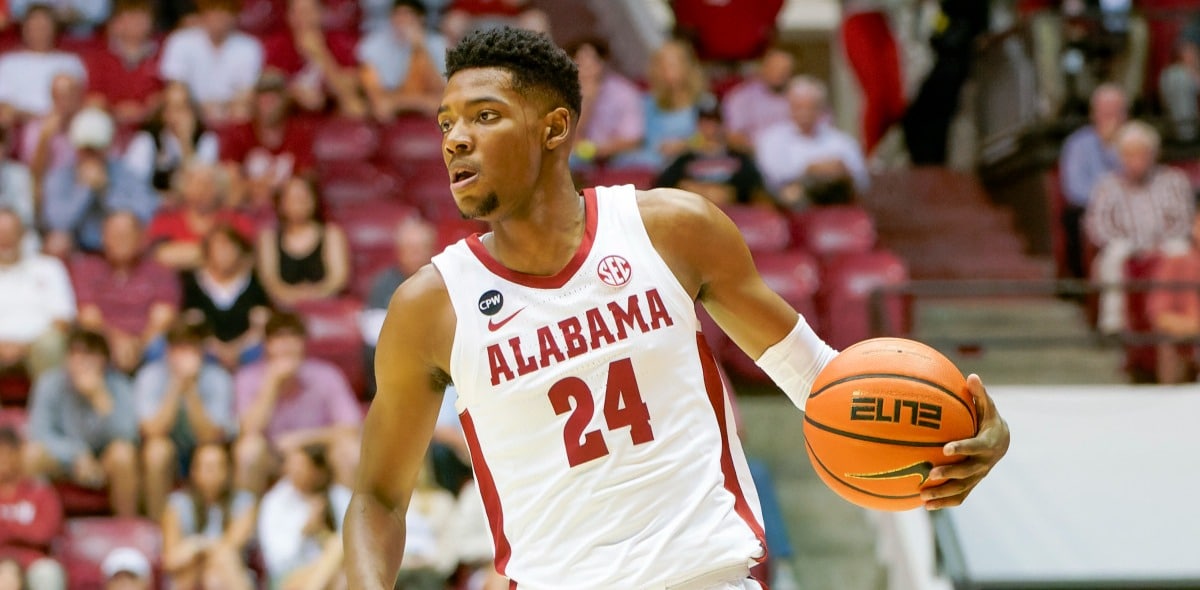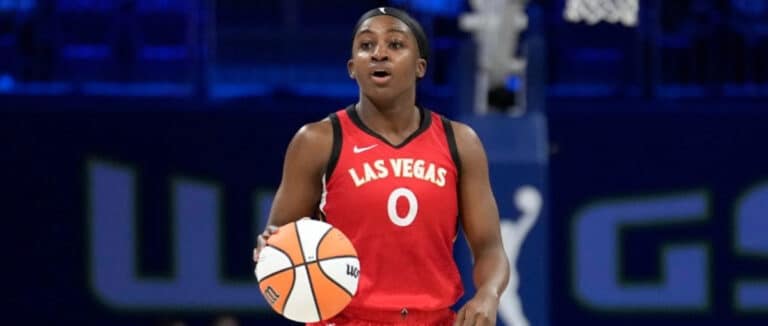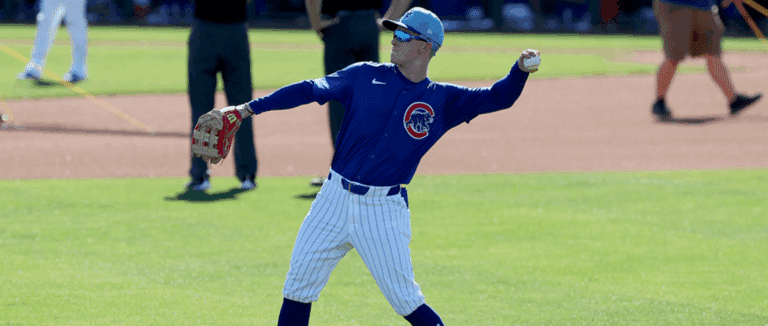March Madness: How to Fill Out Your Bracket & Win Some Bets


Welcome to March! It’s the best time of the year to be a sports fan. Spring Training is heating up, NFL free agency just kicked off, and we are in the midst of the sunshine double in tennis. Most importantly, however, we’re just a day away from the start of round one of the NCAA tournament.
The NCAA tournament, like the Super Bowl, provides us with ample opportunity where even the most casual sports fans are engaged. Thousands of people who haven’t watched a minute of college basketball fill out a bracket, bet on the games and do countless hours of “research” to make their picks.
Maybe you’ve come across this article because you’re one of them. This is the article you need to set yourself apart in the many ways to approach the tournament.
Tips for Filling Out Your Bracket
The two major things you need to consider when filling out your bracket are the rules and the pool size. This is far more important than trying to perfect which team you think will recreate St. Peter’s magical run in 2022.
Understand how your bracket competition is scored. Is it winner take all? Are there multiple payouts? How is each round scored?
The most common scoring system is as follows:
- First round: 1 point
- Second round: 2 points
- Sweet Sixteen: 4 points
- Elite 8: 8 points
- Final Four: 16 points
- Championship Round: 32 points
Don’t Worry As Much About Cinderella Teams
Based on the scoring above, you need to prioritize what teams you think are going to be in the later rounds. Picking first-round upsets is great, but you can’t get caught up in the first round when the stakes are lowest.
The public has a tendency to pick too many underdogs in their bracket as they take March’s “madness” a little too far. Remember, in the last 25 years, the championship has been won by a 1-3 seed, with 1 seed naturally taking home the trophy over 50% of the time.
There will always be one double-digit seed that survives the first weekend, but there likely won’t be 4. Especially given the recency bias of the 15-seed St. Peter’s run in 2022, I think many people will be too eager to fill their brackets with upsets and take underdogs too deep into the tournament.
Yes, there will be upsets. Yes, there will be something that no one saw coming. Rather than trying to pick a needle in a haystack and get that selection on your bracket, focus on finding the teams that will survive the first weekend and will continue to earn you points into the later rounds.
Consider the Size of Your Pool
Think about the size of your bracket pool as well as who you’re playing against. The smaller the pool, the more “chalky” you want your lineup to be. To win a bracket pool, you don’t have to get everything right, you have to be right more often than the next best guy.
In order to do so, you need to be different and introduce some contrarian thinking to your bracket. If you’re in a 30-person bracket pool, you don’t need to have crazy upsets all over your bracket to win.
Consider where you live and who you’re playing against. Avoid local schools and bias. If you’re in a small bracket pool in Alabama this year, don’t pick Alabama to win the championship. 50% of your pool will do so.
Avoid the Talking Heads
Next step. Don’t listen to ESPN “experts” or your buddy that’s watched every minute of Horizon league basketball. You have all the tools you need to approach March Madness at your fingertips.
Don’t introduce a bias. If it seems like everyone is talking up a big underdog, actually look into the stats and, more importantly, look into their tournament path.
To reiterate, picking a round-one upset is far less important than picking the teams who will win multiple games.
Learn From the Oddsmakers
When making your selections for the tournament, take a look at the betting lines for each game. Don’t focus so much on the seeding of the teams in relation to who they’re playing. The 10 seed beating the 7 seed is a common “upset” during the tournament but in reality, the 10 seed is often the favorite in the game based on the betting line.
For example, Utah St. is actually a 1 or 2-point favorite against 7-seed Missouri. Another common upset is the 12 seed beating the 5 seed or the 13 seed beating the 4 seed. This feels like a much bigger event as the difference in seeding is larger than the 10/7.
But looking at the betting lines, 5-seed St. Mary’s is only a four-point favorite against VCU, and 4-seed Indiana is only a four-point favorite over Kent State. So yes, the lower seed winning these games would still be considered an “upset,” but they can’t be considered as surprising as, say, 15-seed UNC Asheville beating 2-seed UCLA as a 17.5-point underdog.
Put Little Stock in a Team’s Seeding
That brings up an important point about seeding itself. Remember, seeding is done by the selection committee, and it’s not perfect. Teams are not always seeded where they “should” be based on their actual performance.
That’s when you hear of teams being over-seeded or under-seeded. Using our earlier example, a team like Indiana might be overseeded as they aren’t deserving of such a high seed and therefore aren’t a large favorite in their first-round matchup.
This is why it’s important to use other resources to find the differences between these teams. The seeding doesn’t tell you much other than where a team is in the draw.
Tips for Betting the NCAA Tournament
There are multiple ways to skin the cat in the tournament. When you’re betting the games, you need to take an entirely different strategy than when you’re filling out a bracket.
Avoid All Futures Bets
My first tip is to avoid the futures market. You’re betting into a market with a 30% hold by the sportsbooks. The “hold” is the advantage the book has over you based on the implied probability of the odds in the given market.
Just because you picked a team in your bracket does not make it a profitable bet to win the tournament. My best advice for someone who wants to bet a team to win the tournament is to open a parlay calculator. A team needs to win six games in order to win the tournament.
Consider an Open Parlay or the Rollover Method
If you can estimate the moneyline price you’ll get based on who they’ll play, you can calculate the payout of a 6 leg parlay and compare it to the futures odds you’ll be given.
You can then either use an “open parlay” where you select the first leg and then leave five open slots to be filled later, or you can simply bet the team every game and roll over the winnings.
More often than not, you’ll find that this pays out far higher than a future bet, and it gives you much more flexibility with your money.
Fading the Public
Another difference between betting and the tournament is the aspect of fading the public. Remember, you don’t *have* to bet every game. But in a bracket, you must make every selection.
If you pick a favorite to advance against a trendy underdog pick, that might be the right play in a bracket, but that has nothing to do with that favorite covering the spread on a betting line. It’s important to keep these two separate because the strategy is so different.
Use Rating Systems
There are plenty of resources you can use to make your selections. Utilize KenPoms efficiency ratings to differentiate between the teams. Use Evan Miyakawa’s Bayesian performance ratings to contemplate the individual impact of important players.
Explore advanced analytics sites like Barttorvik or Haslametrics and worry less about “bracketology” type shows. KenPom’s efficiency ratings can be directly correlated to who ends up winning the big dance. Find out if your sleeper picks really puts up the ratings they would need to knock off a big team.
Most importantly, enjoy the best time of the year. You can find a way to profit from this tournament when you introduce a little bit of game theory to your analysis. And remember, no matter what happens out there, they’re just kids…

Max Gilson
Sports Betting Contributor
Max is a seasoned sports analyst from New York who is known for his work on The Noise podcast. He brings a unique perspective on sports betting to the table, one that focuses on a quantitative approach and finding the best price. He can be found on X @max_thenoise







